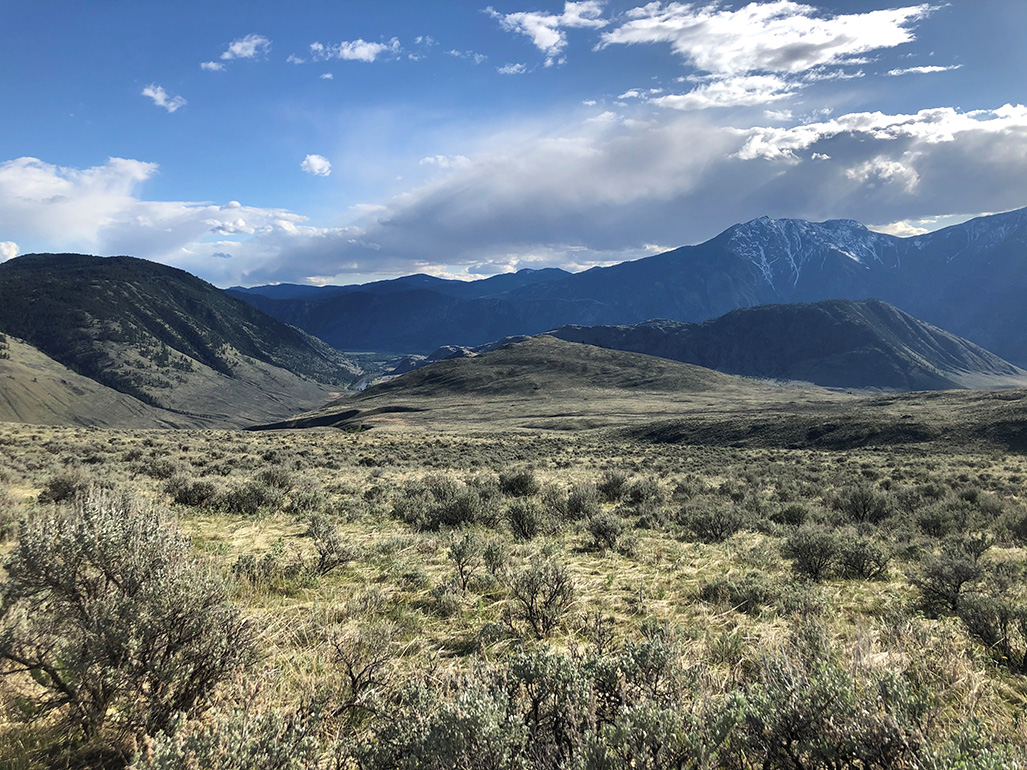
Investigation of Complaints about Livestock Grazing in Protected Areas Finds Issues with Compliance, Enforcement, and Management
VICTORIA – An investigation into public complaints about livestock grazing in protected areas in the South Okanagan has found issues including non-compliance with legal requirements and damage to the environment.
In January and July 2021, the Forest Practices Board received two public complaints about grazing practices in the South Okanagan and White Lake Grasslands Protected Areas. The complainants were concerned that legal requirements for range use and the construction of range developments were not followed, resulting in damage to the environment. The complainant also listed concerns about government not enforcing legal requirements.
The South Okanagan and White Lake Grasslands Protected Areas were established in 2001 to safeguard rare and endangered plants, wildlife habitat, and other ecological and cultural values. The areas are of significant importance to Indigenous peoples and are within the territories of the Lower Similkameen, Osoyoos and Penticton Indian Bands. Tenured grazing occurred prior to the lands becoming protected areas and was permitted to continue following designation.
To investigate the complaints about livestock use, the Board examined the planning and practices of three of the seven ranches with range agreements in the protected areas: Elkink Ranch Ltd., Clifton Ranch, and 69 Ranch Partnership. The Board found that Elkink Ranch Ltd., which holds a range agreement in the area of Mt. Kobau in the South Okanagan Grasslands Protected Area, did not comply with legal requirements to follow the grazing schedule in its range plan, to remove livestock before deterioration to plant communities occurs, to protect riparian and upland areas, and to maintain range developments.
Clifton Ranch was found to have complied with all legal requirements.
For the grazing tenure area held by 69 Ranch Partnership, investigators found that livestock caused damage to riparian areas around Blue Lake. However, the livestock causing the damage were in trespass and did not belong to the range holder.
In the South Okanagan Grasslands Protected Area, the Board found that the Ministry of Forests did not obtain the required authorization to construct 19 kilometres of barbed wire fence and two water diversions. One of the water diversions was found to have multiple issues with its construction and was determined by investigators to have caused damage to the environment.
“The area where soil was removed for the diversion has been irreparably altered,” said Keith Atkinson, Chair, Forest Practices Board. “No attempt was made to salvage the productive layer for future restoration. Additionally, investigators found the excavated soil had been mostly side-cast onto steep slopes, where it entered stream and riparian areas and covered—to the point of destroying—native plant communities, some of which are highly endangered.”
Furthermore, some species in the seed mix used to revegetate the excavated area are known to compete with and potentially overtake native plant communities. “Though the Ministry of Forests complied with legal requirements to revegetate exposed soils, it did not consult with BC Parks or adhere to their MOU concerning the selection of an appropriate seed mix, putting native plant communities at risk,” said Atkinson. “The Board considers this to be an unsound practice.”
The Board also found issues with government’s enforcement of livestock use within the two protected areas. Government enforcement of range use at the Chopaka East, Chopaka West and Kilpoola sites of the South Okanagan Grasslands Protected Area and the White Lake Grasslands Protected Area was not appropriate because the low number of inspections was insufficient to detect non-compliance. The Board also found that enforcement actions taken were not effective in achieving compliance.
The Forest Practices Board is B.C.’s independent watchdog for sound forest and range practices, reporting its findings and recommendations directly to the public and government. The Board investigates public complaints about forest and range practices on public lands and the appropriateness of government enforcement. It can also make recommendations for improvement to practices and legislation.
Contact:
Shannon West, Communications
Forest Practices Board
shannon.west@bcfpb.ca
Phone: 250 213-4735 / 1 800 994-5899
